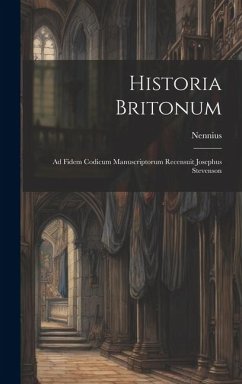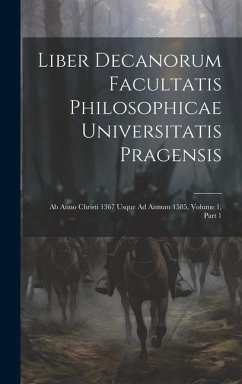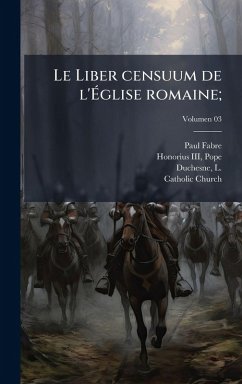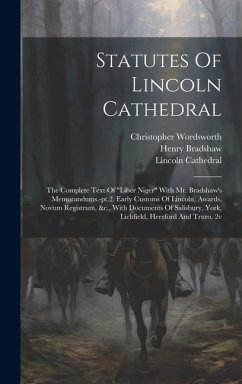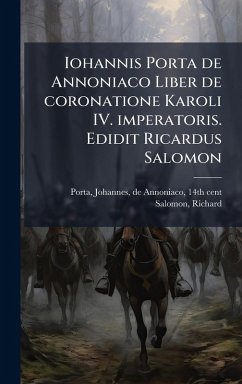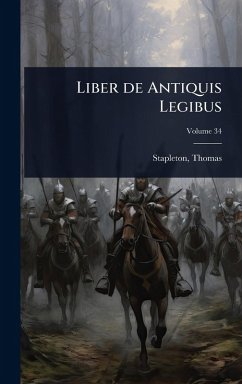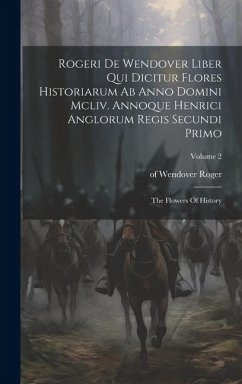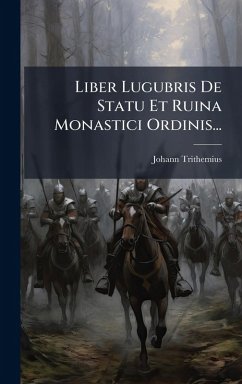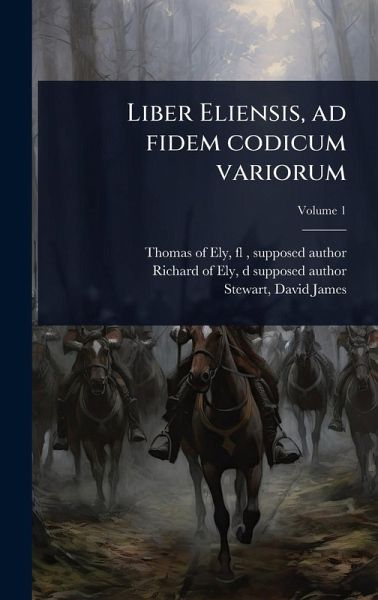
Liber Eliensis, ad fidem codicum variorum
Versandkostenfrei!
Versandfertig in über 4 Wochen
32,99 €
inkl. MwSt.
Weitere Ausgaben:

PAYBACK Punkte
16 °P sammeln!
Liber Eliensis, Volume 1, presents a meticulously edited Latin text of the historical chronicle associated with Ely Cathedral. Attributed to Thomas of Ely and Richard of Ely, this volume offers invaluable insights into the history of the Isle of Ely from its early Christian foundations through the Norman Conquest. The text, compiled from various codices, provides a detailed account of the abbey's origins, its struggles for autonomy, and the lives of its abbots and monks. This edition, carefully prepared by David James Stewart, is an essential resource for historians, theologians, and anyone in...
Liber Eliensis, Volume 1, presents a meticulously edited Latin text of the historical chronicle associated with Ely Cathedral. Attributed to Thomas of Ely and Richard of Ely, this volume offers invaluable insights into the history of the Isle of Ely from its early Christian foundations through the Norman Conquest. The text, compiled from various codices, provides a detailed account of the abbey's origins, its struggles for autonomy, and the lives of its abbots and monks. This edition, carefully prepared by David James Stewart, is an essential resource for historians, theologians, and anyone interested in medieval England and the rich history of Ely. The Liber Eliensis is not only a historical record but also a significant work of medieval Latin literature, reflecting the cultural and intellectual life of its time. This volume makes this important text accessible to scholars and enthusiasts alike. This work has been selected by scholars as being culturally important, and is part of the knowledge base of civilization as we know it. This work was reproduced from the original artifact, and remains as true to the original work as possible. Therefore, you will see the original copyright references, library stamps (as most of these works have been housed in our most important libraries around the world), and other notations in the work. This work is in the public domain in the United States of America, and possibly other nations. Within the United States, you may freely copy and distribute this work, as no entity (individual or corporate) has a copyright on the body of the work. As a reproduction of a historical artifact, this work may contain missing or blurred pages, poor pictures, errant marks, etc. Scholars believe, and we concur, that this work is important enough to be preserved, reproduced, and made generally available to the public. We appreciate your support of the preservation process, and thank you for being an important part of keeping this knowledge alive and relevant.



